What role does humanitarian action play in population displacements?
Aid to refugee, displaced, deported, exiled and interned populations plays a central role in humanitarian action both now and in the past. What types of aid are provided to internees and displaced persons? What kinds of obstacles and dilemmas do these organisations face? What sorts of practical, political and ethical questions are raised by the participation of aid groups in population displacement and internment policies?
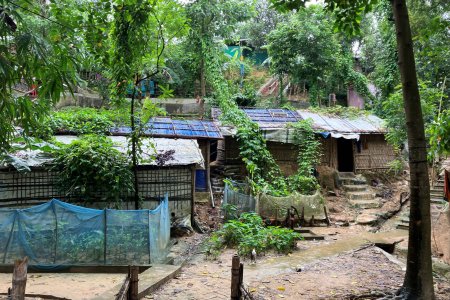 Michaël Neuman
Opinion
Michaël Neuman
Opinion
In Cox’s Bazar
10/31/2023This article was published in the London Review of books website on September 8, 2023. The former evokes the dire conditions in which roughly 1 000 000 Rohingyas live in Cox’s Bazar, the largest refugee camp in the world. In this coastal district in south-east Bangladesh, the humanitarian deployment is impressive, but commitment by donors is waning. Between March and June, monthly food allocations fell from $12 to $8 per person. The difficulties of accessing care, the social control to which they are subjected and the lack of prospects are many reasons explaining the perils faced by the Rohingya population.
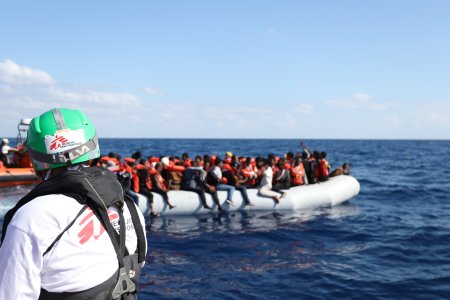 MSF/Mohamad Cheblak
Analysis
MSF/Mohamad Cheblak
Analysis
A brief history of rescue operations in the Mediterranean
10/05/2023In Groupe URD's new issue of "Humanitaires en mouvement" (n°25), Michaël Neuman describes rescue operations in the Mediterranean and the strategies put in place by MSF to adapt to the constraints imposed by governments.
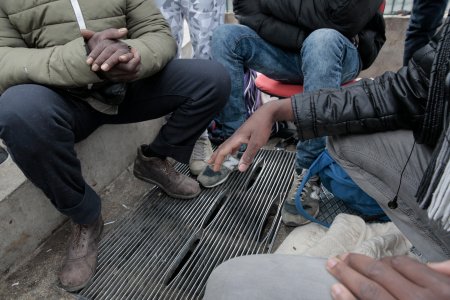 Antoine Kremer/MSF
Analysis
Antoine Kremer/MSF
Analysis
Médecins Sans Frontières-France: tensions arising from the “Migration” projects
05/07/2019In the summer of 2015, the French section of Médecins Sans Frontières started aid projects for migrant populations in Greece and France. The launch of these operations was the occasion for lively discussions within the association, both in terms of public positioning (how to justify an intervention in a rich country and not get lost in "political" territory?), and in terms of revising our operating methods, knowing that the primary needs of migrants were not primarily medical. Some people then recalled the association's militant practices in the 1990s, which were sometimes considered as abuses. By retracing the history of the French Mission, Michaël Neuman seeks to understand, with regard to the migration issue, the complex articulation between operational constraints, political positioning and militant practices.
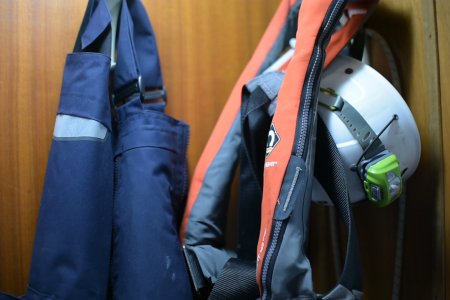 Ikram N'gadi
Op-ed
Ikram N'gadi
Op-ed
Sea Search and Rescue Operations Outlawed
Dont acte, la politique de harcèlement judiciaire, administratif, politique aura eu raison de l’Aquarius, déployé entre 2015 et le milieu de l’année 2018 en mer Méditerranée.
Tribune de Mego Terzian (Médecin, président de Médecins sans frontières) et Michaël Neuman (Directeur d'études au CRASH de MSF) publiée le 07 décembre 2018 dans Le Monde.
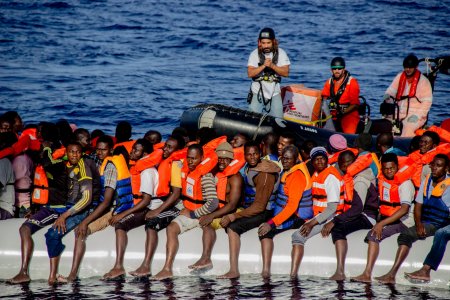 Borja Ruiz Rodriguez/MSF
Op-ed
Borja Ruiz Rodriguez/MSF
Op-ed
Humanitarian reasons versus political interests
07/11/2018Humanitarian organisations coming to the rescue of migrants in the Mediterranean Sea are kindly required either to watch them drown or to hand them over to human traffickers and torturers. We have seen countless political statements, opinion polls and editorials on the need to take a harder line against African migrants and accusing NGOs of being the accomplices of “smugglers”. We have even heard it said that these NGOs are organising the departures of those aspiring to migrate to Europe coincide with the presence of a rescue ship, making relief workers conscious actors in a criminal enterprise.
Consultations on asylum and immigration bill: MSF denounces ‘‘a fool’s game”
01/12/2018Abstaining from participation in a meeting taking place this coming Thursday, MSF feels that "government officials have listened politely at best and shown condescension and contempt at worst in response to positions expressed in meetings, op-ed pieces published in the press and questions asked in meetings by NGOs" and do not hide "a policy that is sliding into harsh repression".
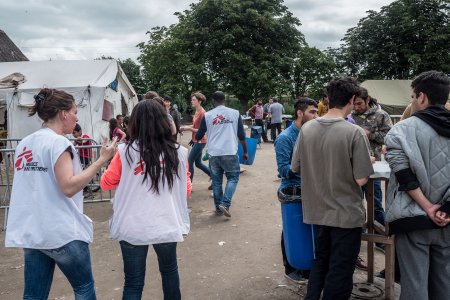 Charles Habib
Analysis
Charles Habib
Analysis
Sheltering, hosting or receiving refugees: the unresolved ambiguities of the La Linière refugee camp
07/05/2017Following the dismantlement of the Basroch camp in Grande-Synthe and the resettlement of refugees in the new La Linière camp, in the spring 2016, Michaël Neuman and Franck Esnée wanted to focus their analysis and story on the “camp” – as an object –, its nature and management. This article was originally published in Alternatives Humanitaires #5, in July 2017.
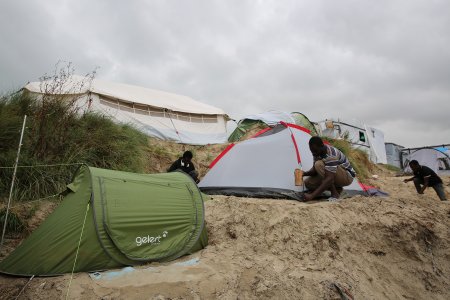 Mohammad Ghannam
Op-ed
Mohammad Ghannam
Op-ed
Calais has become a cage in a jungle
06/17/2017In this post, published in Border Criminologies, Michaël Neuman and Corinne Torre speak out against the inhuman conditions imposed on migrants and refugees in Calais by the French state. This piece was originally published in French in Le Monde.
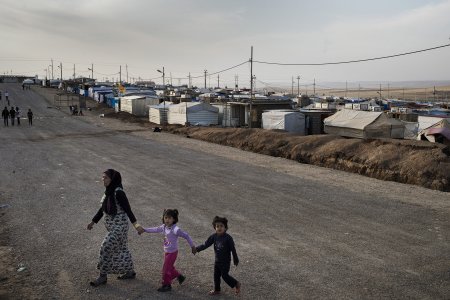 Yuri Kozyrev/Noor
Opinion
Yuri Kozyrev/Noor
Opinion
When camps become cities
03/06/2017There can scarcely be any more sensitive marker of geopolitical transformations than the refugee. Not the individual refugee as such, but the phenomenon of refugees, the representations that make them visible and the discourse around them. From this point of view, 2016 was a year of upheaval, the like of which Europe had not seen since the war in the former Yugoslavia.
